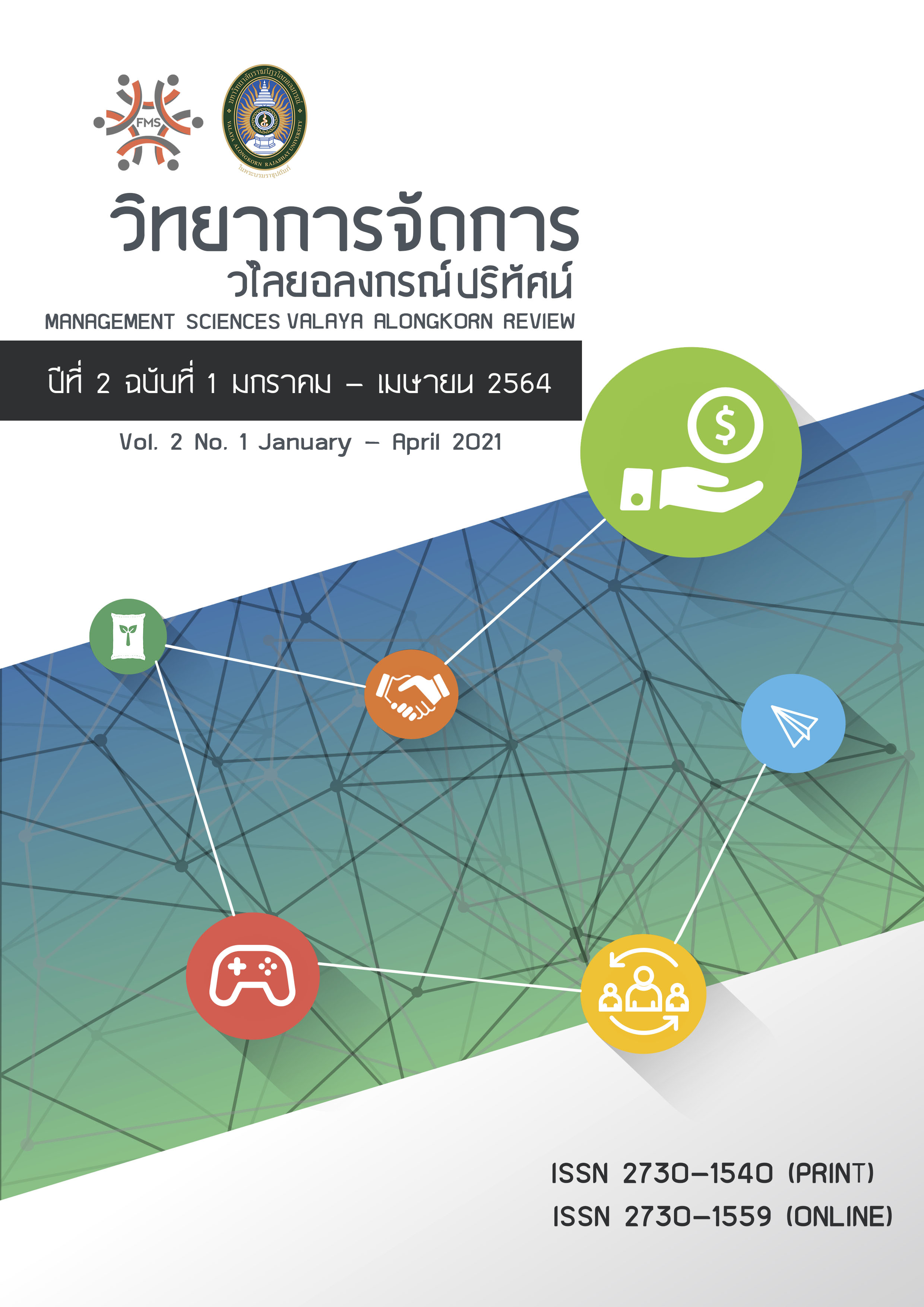ปัญหาการติดเกมออนไลน์ของเยาวชนไทย : ข้อมูลเชิงประจักษ์ การเปรียบเทียบนโยบายในต่างประเทศและข้อเสนอเชิงนโยบาย ปัญหาการติดเกมออนไลน์ของเยาวชนไทย : ข้อมูลเชิงประจักษ์ การเปรียบเทียบนโยบายในต่างประเทศและข้อเสนอเชิงนโยบาย
Main Article Content
บทคัดย่อ
การวิจัยนี้มีวัตถุประสงค์เพื่อศึกษาปฏิสัมพันธ์ระหว่างช่องทางการเล่นเกมออนไลน์และชั่วโมงการเล่นที่มีผลต่อการติดเกมออนไลน์ของเยาวชนไทย โดยใช้กลุ่มตัวอย่างจำนวน 507 คน ที่ศึกษาในระดับมัธยมปลายในเขตกรุงเทพมหานคร เมื่อวิเคราะห์เรื่องเวลาและช่องทางในการเล่นเกมออนไลน์ที่แตกต่างกันว่ามีความสัมพันธ์กับการติดเกมออนไลน์ที่ต่างกันหรือไม่ พบผลว่าปฏิสัมพันธ์ของช่องทางการเล่นเกมและเวลาการเล่นเกมมีผลอย่างมีนัยสำคัญทางสถิติ (F = 5.623, p =.000) นั่นคือผู้ที่เล่นเกมออนไลน์ในสถานที่ให้บริการหรือร้านเกมเมื่อใช้เวลามากขึ้นจะยิ่งมีการติดเกมมากขึ้นกว่าการเล่นในช่องทางส่วนตัวอย่างมีนัยสำคัญทางสถิติ นำไปสู่ข้อเสนอเชิงนโยบายที่ต้องจำกัดเวลาและสถานที่ในการเล่นเกมออนไลน์ จากการศึกษาแนวนโยบายในหลายประเทศพบถึงแนวปฏิบัติและมาตรการจึงได้ข้อสรุปที่สำคัญ คือ การใช้มาตรการด้านภาษี การใช้ความร่วมมือด้านภาคประชาสังคม และการเปลี่ยนสภาพการจ่ายภาษีของผู้ประกอบการให้เป็นการเสียภาษีสรรพสามิต นอกจากนี้เครื่องมือวัดการติดเกมออนไลน์ที่ตรงตามเนื้อหาทฤษฎีและสมบูรณ์ตามหลักสถิติ ด้วยวิธีการวิเคราะห์องค์ประกอบเชิงยืนยัน (Confirm Factor Analysis) ที่มีค่าดัชนีบ่งชี้ที่สมบูรณ์ (P : Chi-square = .78, CMIN/DF = 3.415, TLI = .952, CFI = .966, RMSEA = .069)
Article Details
บทความ ข้อความ ภาพประกอบ และตารางประกอบที่ลงพิมพ์ในวารสารเป็นความคิดเห็นส่วนตัวของผู้นิพนธ์ ถือเป็นความรับผิดชอบของผู้นิพนธ์แต่เพียงผู้เดียว กองบรรณาธิการไม่จำเป็นต้องเห็นตามและไม่มีส่วนรับผิดชอบใด ๆ
เอกสารอ้างอิง
B.W. Park & J.H. Ahn (2010) Policy Analysis for Online Game Addict Problem. System Dynamics Review. 26(2) : 117–138
Brand, M.; Young, K.S.; Laier, C.; Wolfling, K.; Potenza, M.N. (2016) Integrating psychological and neurobiological considerations regarding the development and maintenance of specific Internet-use disorders: An interaction of person-affect-cognition-execution (I-PACE) model. Neurosci. Biobehav. Rev., 71, 252–266.
Bruner O and Bruner K (2006) Playstation Nation: Protect Your Child from Video Game Addiction. Hachette Book Group, New York
Dong J. Cho, Hyung T. Kim, Jaywon Lee & Sang H. Park (2018) Economic cost–benefit analysis of the addictive digital game industry, Applied Economics Letters, 25:9, 638-642, DOI: 10.1080/13504851.2017.1355528
Faiola, A. (2006) “When Escape Seems Just a Mouse-click Away”. The Washington Post, Retrieved April 2020, from http://www.washingtonpost.com/wpzn/content/article/ 2006 /05 /26 / AR2006052601960.html
Griffiths (2005). A components model of addiction within a biopsychosocial framework. Journal of Substance Use.10 (4)
Kim and Namkoog (2008) The relationship between online game addiction and aggression, self-control and narcissistic personality traits.23:212-218. Retrieved August 18,2010 from European Psychiatry
Kuan-Ying H, Ray C. H, Yi-Hsin Y, Kun-Hua L and Cheng-Fang Y. (2019) Relationship between Self-Identity Confusion and Internet Addiction among College Students:The Mediating Effects of Psychological Inflexibility and Experiential Avoidance. International Journal of Environmental Research and Public Health 16(17):3225
Holman L. (2014). Internet Gaming Addiction, a presentation published on Nov 5, 2014 from http://slideshare.net site with /drleighholman/internet-gaming-addiction as part of the URL
Macartney J. (2008). Internet addiction made an official disorder in China. Times Online. Retrieved April 10, 2020 from http://www.timesonline.co.uk/tol/news/world/asia/article5125324.ece
Santhaweesuk, K. (2014). Saphāp kānbō̜rihān khlang khō̜ng ʻongkān bō̜rihānsūantambon nai khēt phư̄nthī čhangwat ʻUbon rātchathānī [Finance administration Tambon Administration Organizations of Ubon Ratchathani province] (Unpublished master’s independent study). Ubon Ratchathani Rajabhat University, Ubon Ratchathani, Thailand.
Techaniyom K. (2011)patčhai chœ̄ng sāhēt thī mī phon tō̜ kān tit kēm ʻō̜nlai khō̜ng nakrīan chan matthayommasưksā tō̜n plāi nai khēt Krung Thēp Mahā Nakhō̜n [The Causal Relationship of Factors Affecting online Gaming Addiction in the High Secondary School Students in Bangkok], Dissertation of Master of Public and Private Management degree, National Institute of Development Administration.
Tyrer,R. 2008. Addiction and Massively Multiplayer Online Role-Playing Games(MMORPGs): AN In-Depth Study Of Key Aspect., Dissertation of BCs. University of Salford.
West, R. 2006. Theory of Addiction. Oxford: Blackwell Publishing.
Woog, K. (2006). Computer gaming addiction in adolescents and young adults,solutions for moderating and motivating for Success,12-29. Retrieved August 18, 2019, from http://www.wooglabs.com/ gamingaddiction.pdf
YEE N (2006) Motivations for play in online games. Cyberpsychology & Behavior 9(6), 772–775


